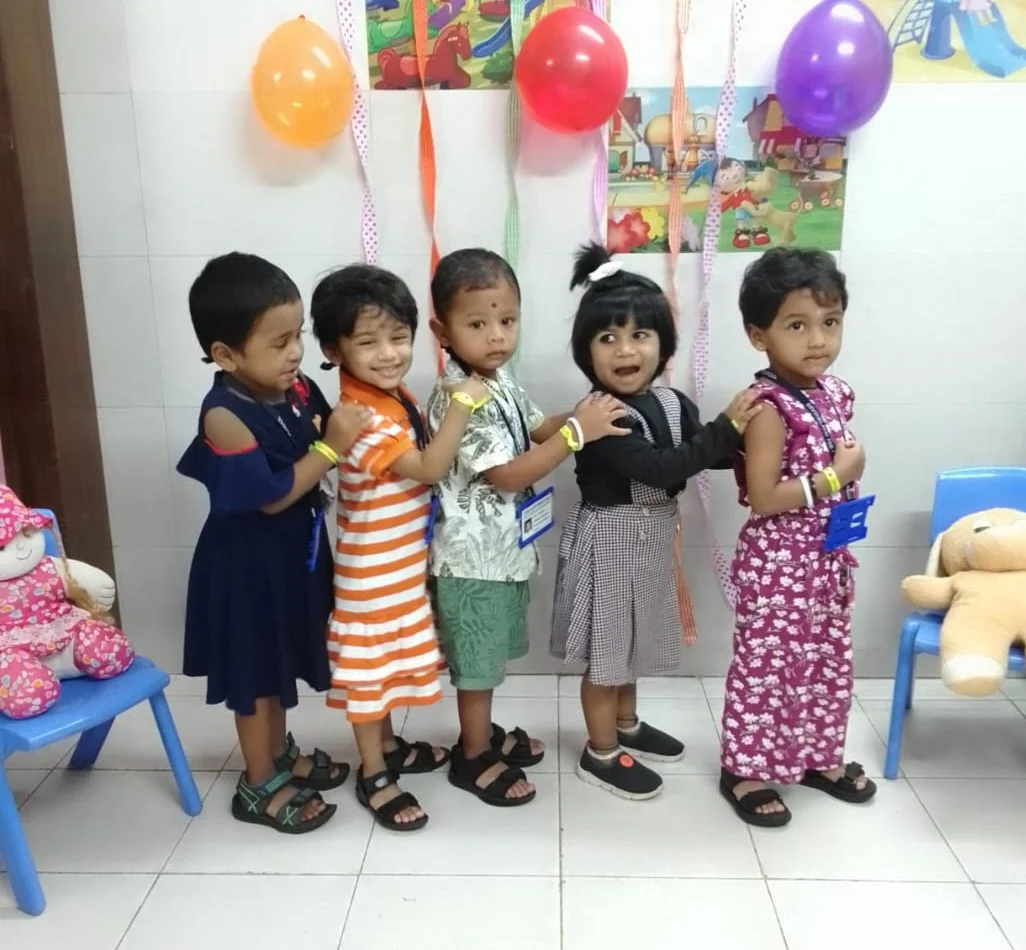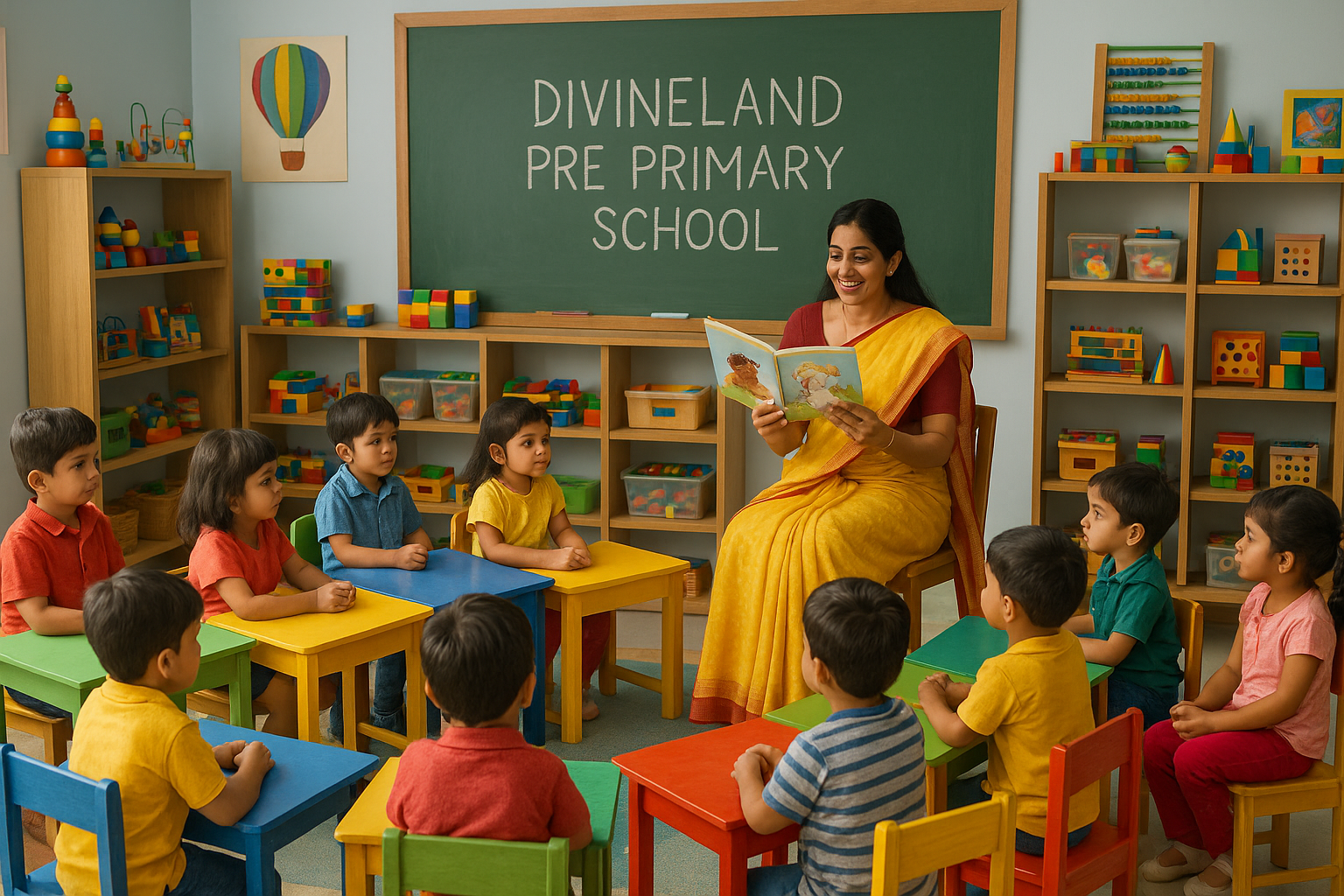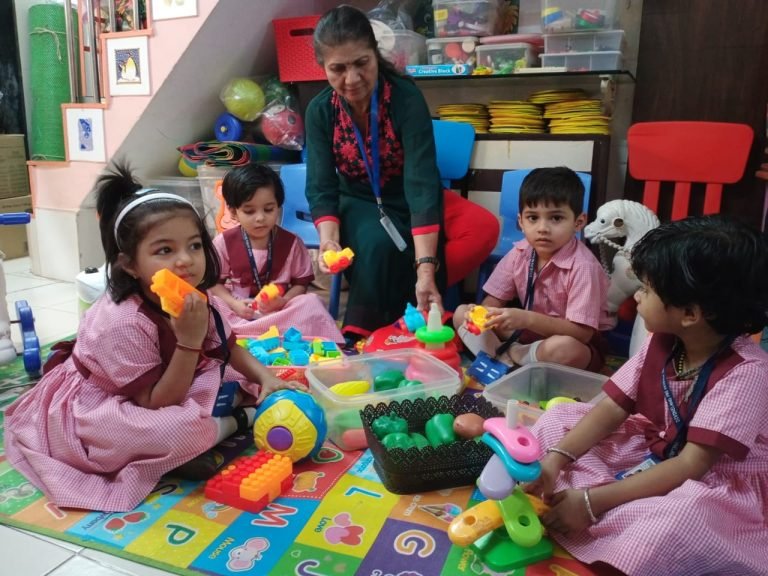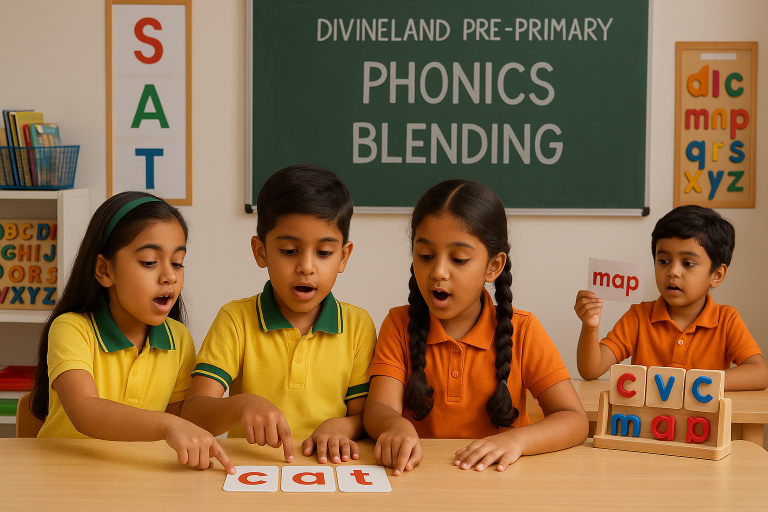
Language Development in preschoolers is central to the way they communicate thoughts, understand others, and establish relationships. During this period, children start constructing sentences, questioning, and employing new words daily.
Language Development through songs, stories, and conversations aids in establishing a solid foundation for future learning. With proper guidance, Language Development can be a natural and fun part of daily routines.
Importance of Language Development
Language Development impacts all aspects of a child’s development. Language supports thinking, control of emotions, Reading Readiness, and developing relationships. Kids who master strong language skills are more likely to succeed in school and relate comfortably with others and adults.
Cognitive Growth
Language Development helps children learn to structure thoughts, solve problems, and communicate ideas effectively.
Emotional Expression
Language allows preschoolers to share how they feel, ask for help, and manage frustration with words rather than behavior.
Social Interaction
Clear communication builds friendships, encourages sharing, and helps children take turns and follow group rules.
Call or Whatsapp on +919082778593 / +918591021373, for Admission Details.
Click Here, to download the brochure!
Key Stages in Language Development
Language Development in Preschoolers happens in noticeable stages. Understanding these stages helps parents and teachers support progress at the right time.
Vocabulary Growth
At the playschool stage, kids naturally learn so many new words. Their dictionary grows from simple nouns to verbs, adjectives, and even abstract words. They start using words like “because,” “before,” and “after” to connect ideas.
Sentence Structure
Preschoolers start using long and more complex sentences. “I want to play with that toy.” instead of “want toy.” Grammar begins to enhance, and they use plurals, past tense, and pronouns properly.
Question Formation
Children show curiosity by asking questions such as “Why is the sky blue?” or “What are you doing?” This is a strong sign of Language Development and shows that they are thinking and processing information.
Storytelling Skills
Retelling stories or daily events in the right order shows how much children understand language. Preschoolers start using phrases like “first,” “then,” and “finally” as they describe what happened.
Conversational Skills
Language Development also involves listening and taking turns in conversation. Children learn to maintain eye contact, wait for a response, and stay on topic during interactions.
Call or Whatsapp on +919082778593 / +918591021373, for Admission Details.
Click Here, to download the brochure!

Activities that Support Language Development
Daily interactions and simple activities can strongly support Language Development in preschoolers. These methods are easy to include at home or in classrooms.
Reading Aloud Daily
Reading books aloud exposes children to new vocabulary, sentence patterns, and ideas. It builds listening skills and encourages them to ask questions about the story.
Singing Rhymes and Songs
Songs help children remember words and understand rhythm and flow. Rhymes also improve listening and word recognition.
Asking Open-Ended Questions
Questions like “What do you think will happen next?” or “Why do you like this toy?” prompt longer responses and expand thinking.
Labelling Objects and Actions
Naming objects like “spoon,” “chair,” or “jacket” during routine tasks connects language to the environment. Saying things like “You’re jumping high!” also adds action words to their vocabulary.
Story-time Participation
Asking preschoolers to retell a story in their own words boosts memory and sequence skills. It also strengthens grammar and vocabulary use.
Call or Whatsapp on +919082778593 / +918591021373, for Admission Details.
Click Here, to download the brochure!

Role of Parents and Teachers
Adults play a major role in Language Development. Preschoolers learn best through listening, imitation, and interaction. Supportive adults create a rich language environment that encourages confidence and progress.
Modelling Language Use
Speaking clearly, using full sentences, and describing actions help children learn how to use language correctly.
Responding with Interest
When children speak, responding with interest and encouragement helps build confidence and motivates them to keep talking.
Expanding on Children’s Speech
If a child says, “Dog run,” a parent can say, “Yes, the dog is running fast.” This adds structure and new words to what the child already knows.
Positive Correction
Instead of pointing out mistakes harshly, adults can model the correct form. For example, if a child says, “He go to school,” the adult might say, “Yes, he goes to school every day.”
Language Development in the preschool years provides a solid foundation for later success. The children who are guided through conversations, storytelling, and day-to-day interaction acquire school and social skills they require. At home or at preschool, regular attention to Language Development enables children to learn how to communicate, get along with others, and develop with confidence.
Strong Language Development starts with the right early learning environment. At Divineland Pre Primary School, children grow through stories, songs, and guided conversations that build confidence and communication skills. With caring teachers and a play-based approach, your child will develop a solid language foundation for future success.
Give your child the advantage of early Language Development in a setting designed for joyful learning. Choose Divineland Pre Primary School—a place where every word leads to growth. Admissions are now open.
Build strong language skills early—join Divineland Pre Primary School today!
Call or Whatsapp on +919082778593 / +918591021373, for Admission Details.
Click Here, to download the brochure!
FAQs
Why is Language Development Important in Preschoolers?
Language Development helps children express thoughts, build social skills, and prepare for reading and learning in school.
How can Parents Support Language Development at Home?
Read daily, talk often, sing songs, and ask open-ended questions to build your child’s vocabulary and confidence.
Which Preschool Supports Strong Language Development?
Divineland Pre Primary School encourages Language Development through stories, play, and rich daily conversations.


